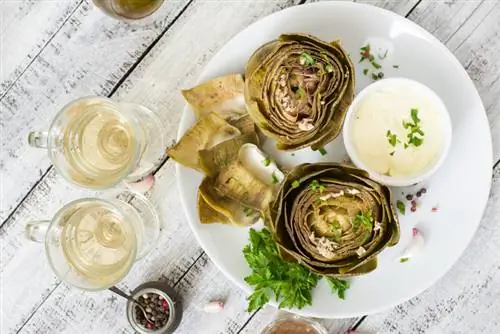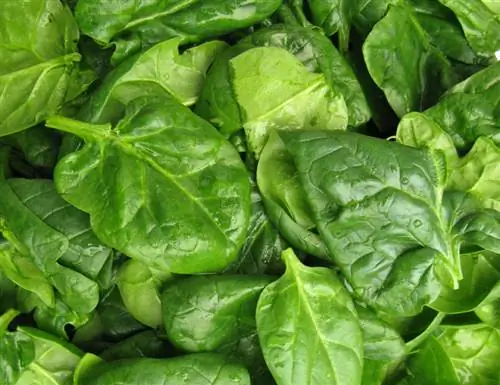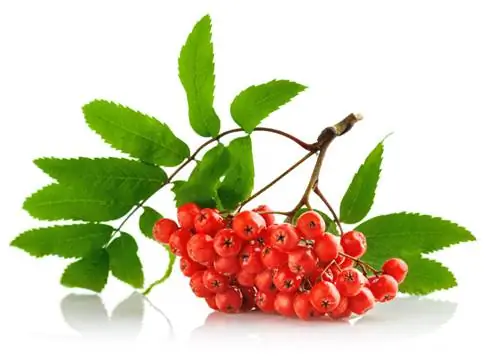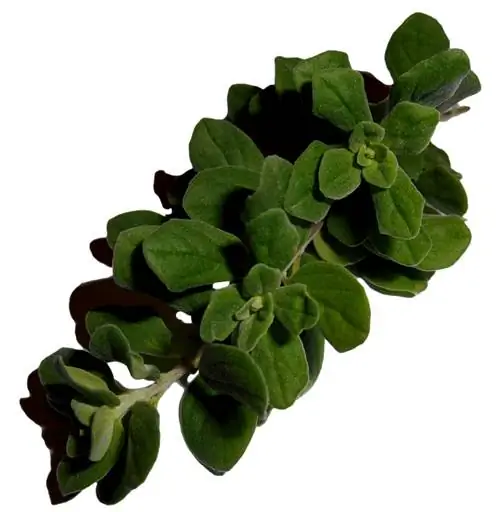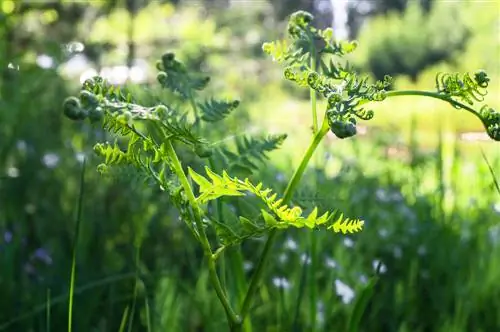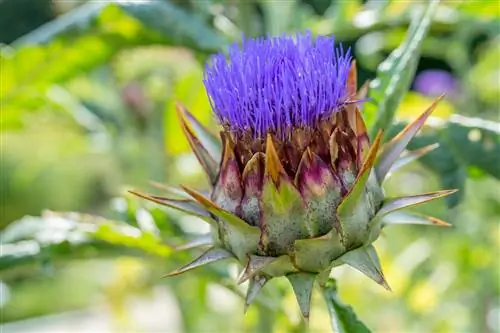- Author admin [email protected].
- Public 2024-01-02 03:03.
- Last modified 2025-06-01 06:02.
Artichokes look very distinctive and their flowers bring an exotic flair to the garden bed. Are they really safe to eat or do they contain toxins or inedible parts? Find out here!
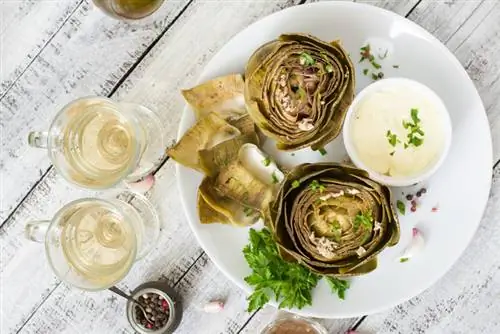
Are artichokes poisonous or inedible?
Artichokes are non-toxic and very he althy, but not all parts are edible. The outer leaves and fibrous interior are tough but not poisonous. Artichokes are rich in minerals, vitamins and have healing properties.
Do not eat artichokes whole
Artichokes are completely non-toxic and even very he althy and are also available as a remedy. However, not all parts of the artichoke can be eaten. The outer leaves of the artichoke bud are tough, as is the fibrous interior, also known as hay. This should be sorted out before or during consumption. However, these parts are not poisonous, just very tough. You can find out how to properly harvest, store and prepare your artichoke here.
Healing effects of artichokes
The bitter substances and acids that are abundant in artichokes stimulate both the production of stomach acid and the liver and bile flow. The artichoke has a detoxifying effect, promotes digestion, expands blood vessels and protects the cardiovascular system and other internal organs. It also regulates the cholesterol level in the blood.
Due to these properties, they are used for the following complaints, among others:
- Irritable Bowel Syndrome
- increased cholesterol level
- Digestive problems
- increased blood fat
- Indigestion
- in malaria patients
Artichokes are very he althy
Artichokes are rich in minerals and vitamins.100 grams of artichokes contain, among other things:
- 44 mg calcium
- 11, 7mg Vitamin C
- 60mg Magnesium
- 1, 28mg iron
- 90mg phosphorus
- 370mg potassium
- 13IU Vitamin A
If you eat a normal-sized artichoke weighing 300 grams, you will have a quarter of your daily calcium requirement (approx.500mg/day), a third of your daily requirement for vitamin C (about 100mg/day), at least a third of your daily requirement for iron (10 - 15 mg/day), a third of your phosphorus requirement (600 - 700mg/day) and half of your Daily requirement for magnesium (300 - 400mg) covered.

